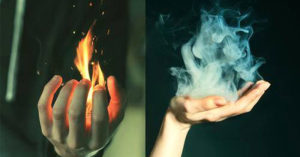 Centuries ago, Christian forces intent on dominating pagan cultures labeled any non-Christian religious or spiritual practices “black magic”.
Centuries ago, Christian forces intent on dominating pagan cultures labeled any non-Christian religious or spiritual practices “black magic”.
People who participated in these practices were blamed for all kinds of misfortunes, such as crop failures and death of farm animals.
Women in particular were accused of summoning demons and unleashing evil forces on their neighbours and it was believed that they would curse others.
If people believed they were victim of a curse, they would seek out a “white witch” who would work a counter spell to lift it.
Any kind of bad luck, including illnesses and injuries, might be the result of someone else’s black magick and this required white magick to reverse it.
Non-Wiccan witches may argue that this type of spellwork can be necessary for self-defense against people who can cause them significant harm.
The wiccan philosophy is different, in that spellwork used to protect oneself from harm would focus on the person casting the spell, and not the person who poses the threat. Protective spells can be performed successfully without sending any negative intention toward another person, so there’s no need for curses, hexes, or other forms of black. magick.
While some wiccan may consider themselves to be “white witches’ practicing “white magick” others make no distinction between black and white in this regard.
Wicca Living (2019). A beginner’s guide to the wiccan religion. Retrieved from http://wiccaliving.com/what-is-wicca/